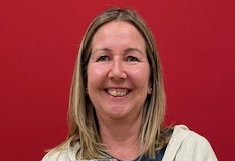SCIENTISTS and campaigners are calling for a shift in research priorities surrounding dyslexia following a major study.
A project from the University of Reading and the University of Birmingham found dyslexic people and their families want research funding to focus on practical support, not just brain science.
Researchers on the study and found five key research priorities: training teachers and professionals, educational supports and interventions, making services and spaces inclusive, mental health and self-esteem, and understanding dyslexic cognition.
It comes amid Dyslexia Awareness Week, and as figures show that 78% of relevant UK funding from 1999 to 2022 went to biology, brain and cognition studies; £12.4 million of £15.9 million in total.
Dyslexia is a range of difficulties in processing which affect the acquisition of literacy skills such as reading and spelling, which exist along a continuum and can be influenced by a number of both genetic and environmental factors.
It can also make other skills such as reading comprehension and maths more difficult, too, but is not a condition which affects intelligence.
Following the study, researchers have recommended that UK research councils should target funding to community priority areas, especially educational and psychosocial support.
They also recommend that the Department for Education should use universal phonics screening in Year One to ensure equitable diagnostic follow-up and support.
Among other suggestions are that the DfE should also mandate training on dyslexia in all Initial Teacher Education programmes, including intersectional awareness.
UoR’s Professor Holly Joseph, who co-authored the study, said: “The views of members of the dyslexia community are vital to help us prioritise research that they care about.
“The results are clear:there is a strong feeling that we should be directing more funding to focus on finding the most effective interventions and support for people with dyslexia in society, whether that be in education, work, for their mental health and wellbeing, or in making society more inclusive.”
Alice Williams, a member of administrative staff at the University of Reading, experienced first-hand how the education system could be simultaneously supportive and disparaging about her dyslexia.
Alice received her dyslexia confirmation after starting sixth form, when teachers at her new private school observed the differences in her written and verbal communication.
She said: “My teachers saw someone full of potential who verbally was considerably adept, but on paper couldn’t string together a coherent chain of thought.
“It was my English teacher that, in a report, first put into words that my verbal versus written communication was on such differing levels that it was worth looking into and lo and behold, after meeting with an educational psychologist, I received my confirmation of moderate dyslexia with a short-term memory impairment.
“We don’t need more research on the why or how; we need research to focus on the who, the human aspect and experience, not just for those who are dyslexic but for those who support those dyslexics in their life.”
























